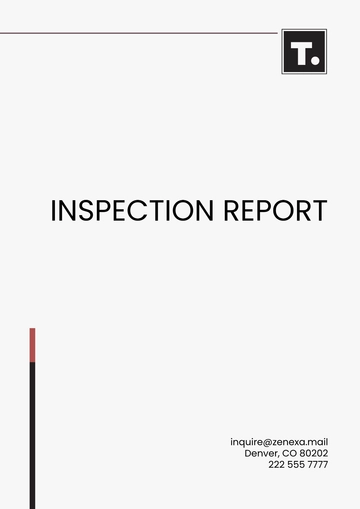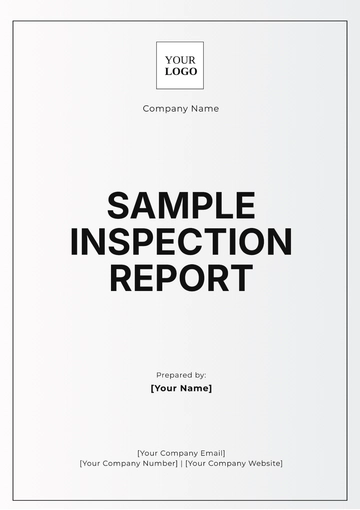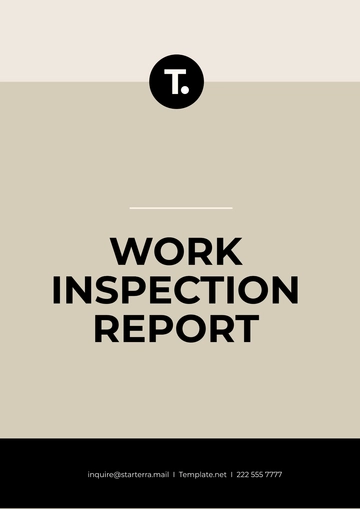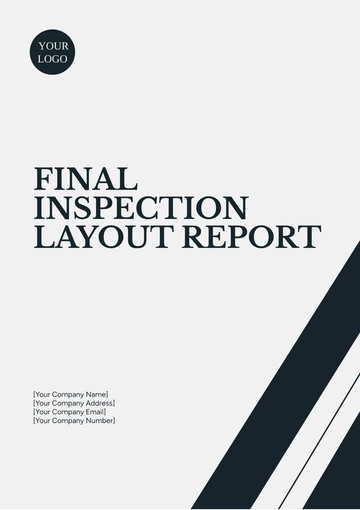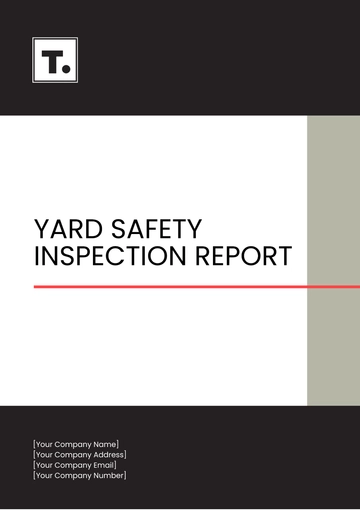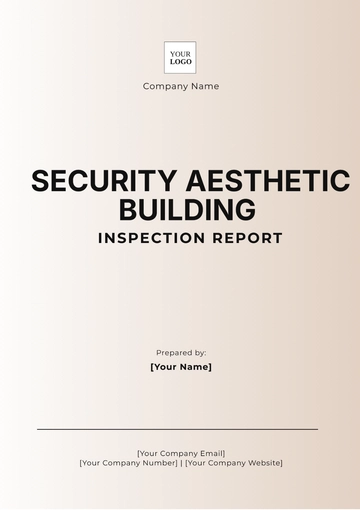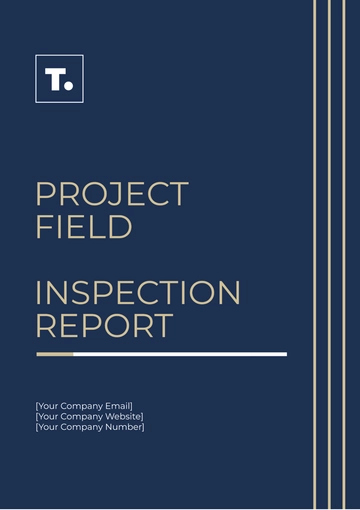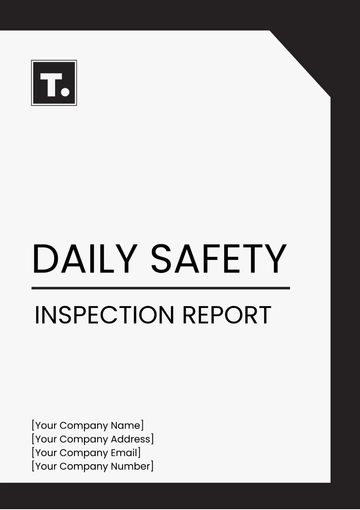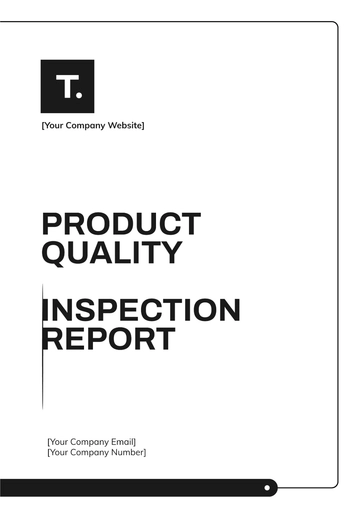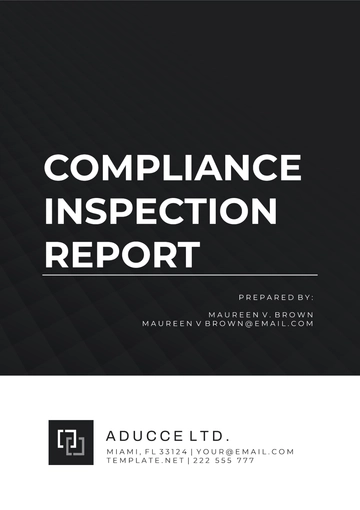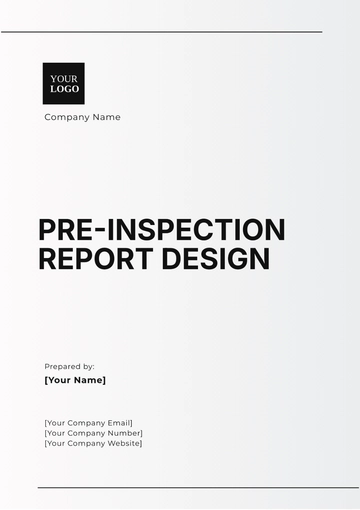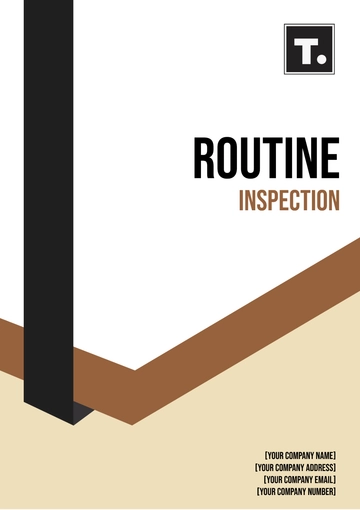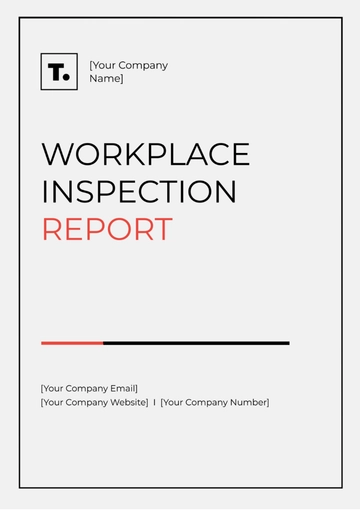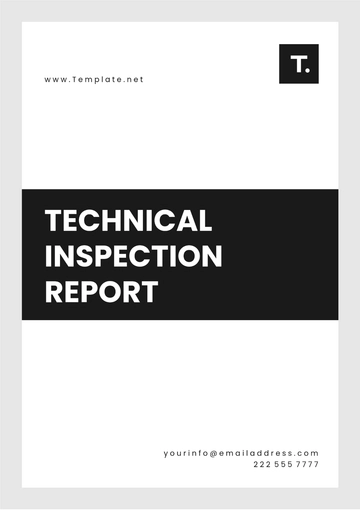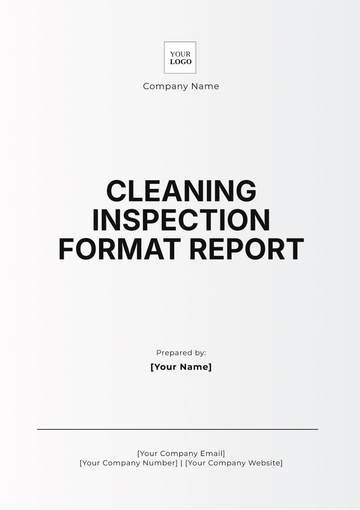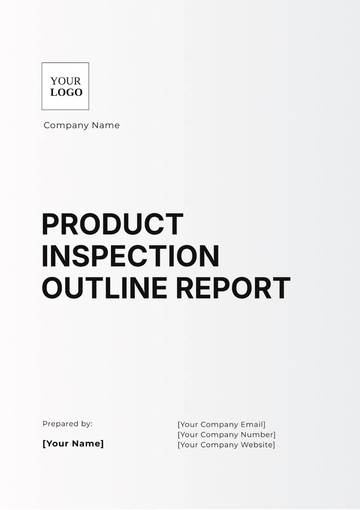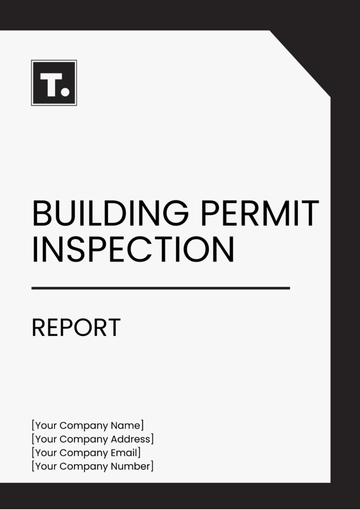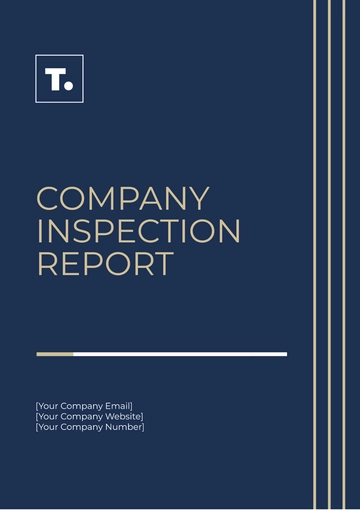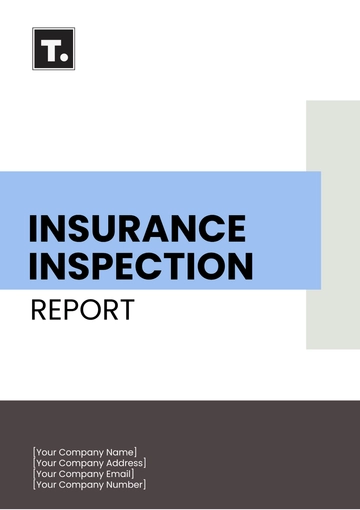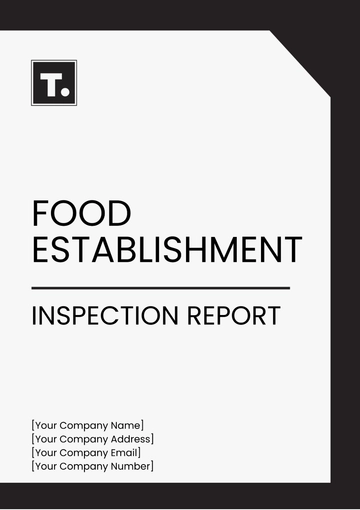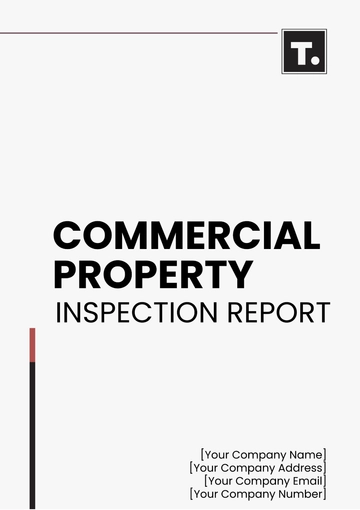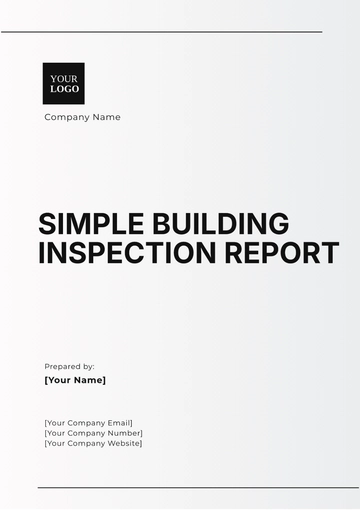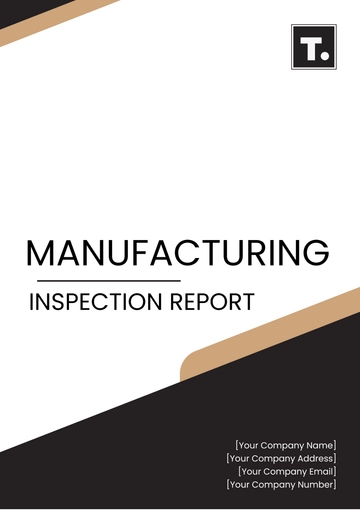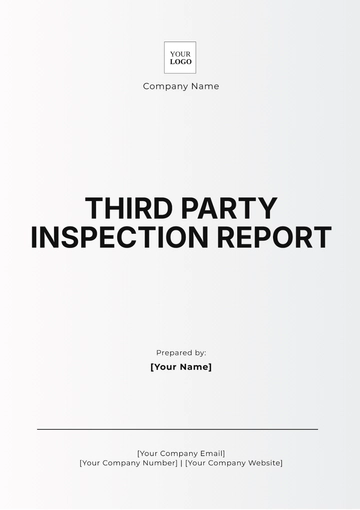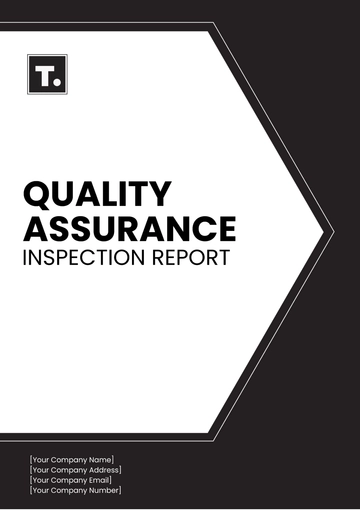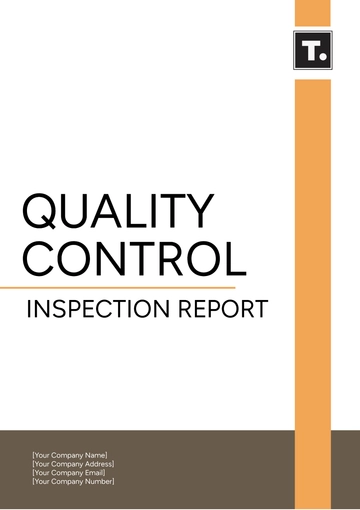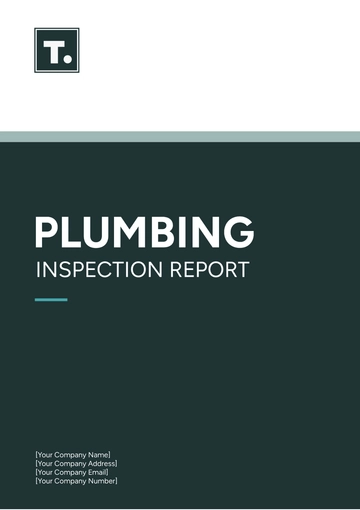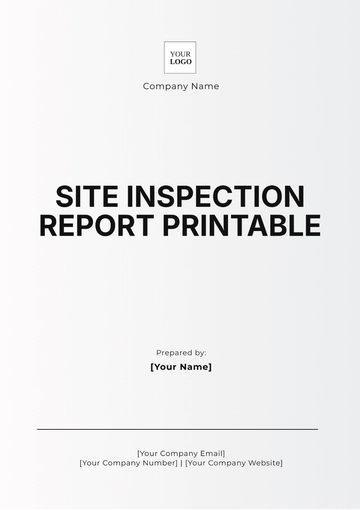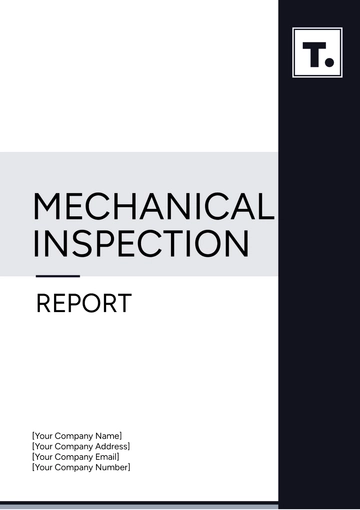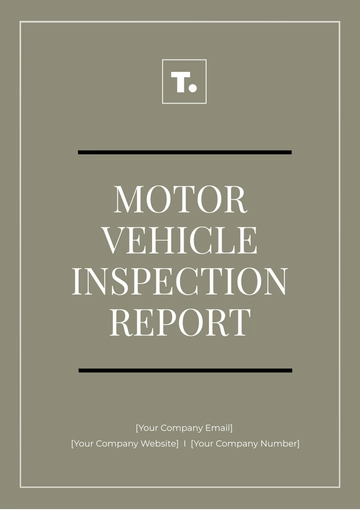Free Safety Inspection Format Field Report
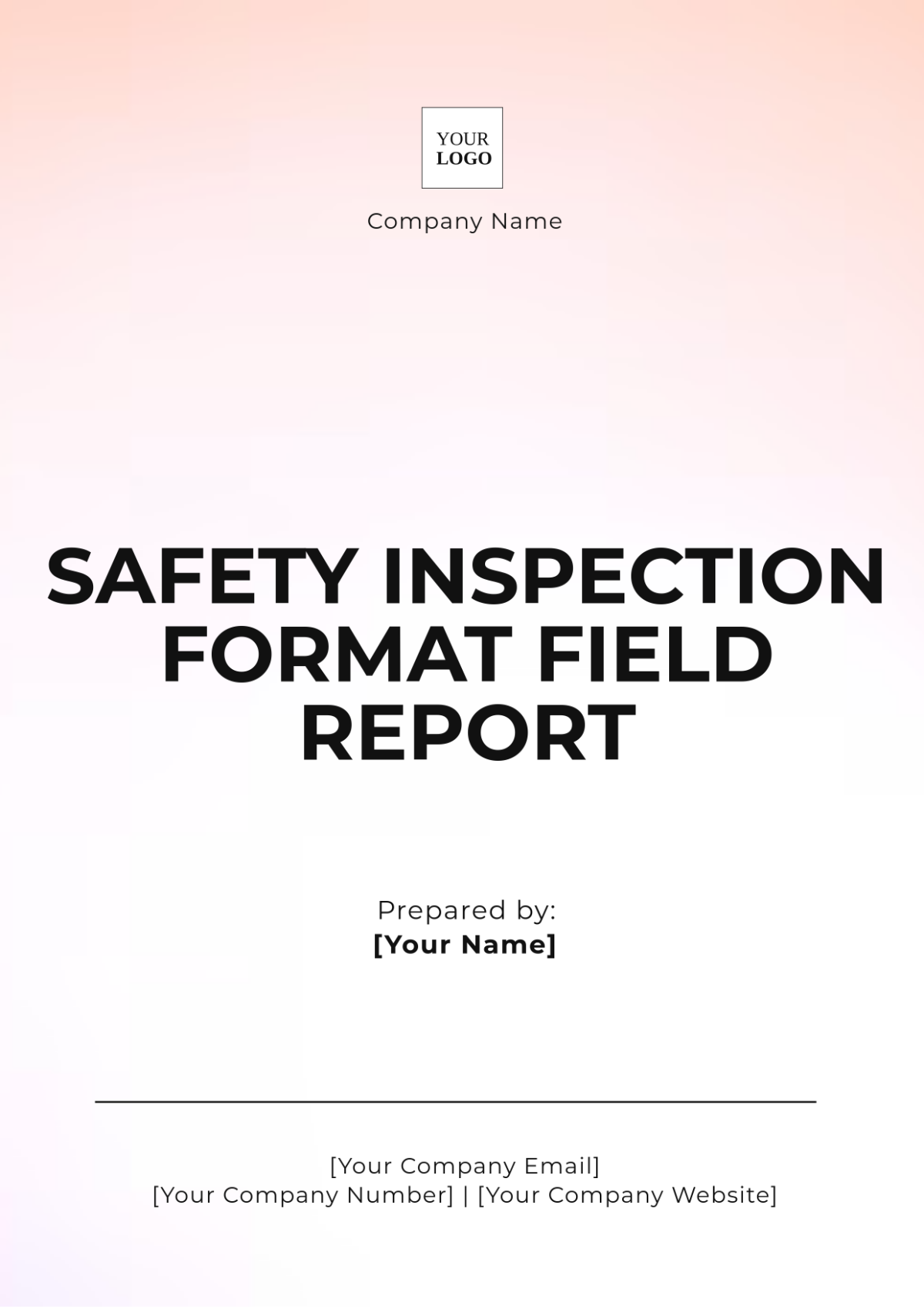
Prepared by: [Your Name]
Date: [Date]
I. Introduction
The purpose of this Safety Inspection Field Report is to systematically document observations, identify potential hazards, and ensure compliance with safety regulations within the inspected area. This inspection aims to maintain a safe working environment by addressing any irregularities in safety protocols and recommending corrective actions where necessary. The findings listed herein are crucial to safeguarding personnel and property, minimizing risk, and ensuring adherence to the organization's health and safety policies.
This report is a detailed review of the facility’s safety measures and highlights areas that may pose risks to the workforce. The goal is to continuously improve the workplace by identifying hazards and addressing them promptly.
II. Inspection Checklist
A. General Safety
No. | Questions | Yes | No |
|---|---|---|---|
Are emergency exits marked and accessible? | |||
Is the fire safety equipment available and operational? | |||
Are walkways and work areas free from obstructions? |
B. Equipment Safety
No. | Questions | Yes | No |
|---|---|---|---|
Is all machinery in proper working condition? | |||
Are safety guards and mechanisms in place on all equipment? | |||
Are lockout/tagout procedures followed? |
C. Chemical Safety
No. | Questions | Yes | No |
|---|---|---|---|
Are Material Safety Data Sheets (MSDS) available and accessible? | |||
Is proper Personal Protective Equipment (PPE) available and used? | |||
Are chemicals stored properly according to guidelines? |
III. Findings
The following table summarizes the key findings from our safety inspection:
Observation | Condition | Risk Level |
|---|---|---|
Emergency exits | Some exits are obstructed by crates | High |
Fire extinguishers | One extinguisher missing in zone 3A | Medium |
Chemical storage | Improper labeling of chemical containers | High |
Conveyor belt | Worn out, making unusual noise | Medium |
Safety guards | Missing on two machines in zone 4B | High |
PPE compliance | Not all personnel were using gloves/goggles | Medium |
Lockout/tagout procedures | Not followed in the maintenance area | Critical |
IV. Recommendations
Based on the observations made during the inspection, the following corrective actions are recommended:
Emergency Exits:
Ensure all emergency exits are cleared and visible at all times. Storage crates should be relocated, and exit paths should be evaluated weekly for potential obstructions. This will reduce the risk of blockage during an emergency evacuation.
Fire Safety Equipment:
Replace or repair missing and inoperative fire extinguishers immediately. Schedule monthly maintenance checks to ensure all fire extinguishers are in good condition. Regular inspections will minimize the risk of equipment failure during emergencies.
Chemical Storage:
Review and revise chemical labeling practices to meet compliance standards. Provide additional training for handling and storage of hazardous materials. Ensure that all chemicals are stored in well-ventilated areas, away from direct sunlight, and in compliance with OSHA regulations.
Machinery Safety:
Replace the worn-out conveyor belt in section 2E and immediately install safety guards on the exposed belts in zone 4B. This will prevent accidents due to moving parts and ensure the machinery operates safely.
PPE Compliance:
Reinforce the mandatory use of PPE by implementing more frequent safety briefings and checks. Make sure that all workers in hazardous areas are wearing the required protective equipment at all times.
Lockout/Tagout Compliance:
Conduct refresher training sessions on lockout/tagout procedures for all maintenance personnel. Introduce a monitoring system to ensure compliance, including random spot checks and immediate corrective actions when non-compliance is detected.
V. Conclusion
This safety inspection has identified several critical areas within the facility that require immediate attention to enhance workplace safety and compliance. The recommendations provided should be implemented promptly to mitigate potential hazards and reduce the risk of accidents. Continued vigilance is necessary to maintain an environment that upholds the highest safety standards.
It is also recommended that regular safety audits be conducted every quarter to ensure continuous improvement in safety practices. Documentation and follow-up on corrective actions should be maintained to ensure long-term safety compliance.
VI. Signatures

[Your Name]
Inspector
[Date Signed]
- 100% Customizable, free editor
- Access 1 Million+ Templates, photo’s & graphics
- Download or share as a template
- Click and replace photos, graphics, text, backgrounds
- Resize, crop, AI write & more
- Access advanced editor
Ensure comprehensive safety inspections with Template.net’s Safety Inspection Format Field Report Template. This editable and customizable template is perfect for documenting hazards, safety measures, and compliance checks. Editable in our Ai Editor Tool, you can easily adjust sections, add notes, and personalize the report to suit your needs. Simplify your safety reporting with this professional, flexible template.
You may also like
- Sales Report
- Daily Report
- Project Report
- Business Report
- Weekly Report
- Incident Report
- Annual Report
- Report Layout
- Report Design
- Progress Report
- Marketing Report
- Company Report
- Monthly Report
- Audit Report
- Status Report
- School Report
- Reports Hr
- Management Report
- Project Status Report
- Handover Report
- Health And Safety Report
- Restaurant Report
- Construction Report
- Research Report
- Evaluation Report
- Investigation Report
- Employee Report
- Advertising Report
- Weekly Status Report
- Project Management Report
- Finance Report
- Service Report
- Technical Report
- Meeting Report
- Quarterly Report
- Inspection Report
- Medical Report
- Test Report
- Summary Report
- Inventory Report
- Valuation Report
- Operations Report
- Payroll Report
- Training Report
- Job Report
- Case Report
- Performance Report
- Board Report
- Internal Audit Report
- Student Report
- Monthly Management Report
- Small Business Report
- Accident Report
- Call Center Report
- Activity Report
- IT and Software Report
- Internship Report
- Visit Report
- Product Report
- Book Report
- Property Report
- Recruitment Report
- University Report
- Event Report
- SEO Report
- Conference Report
- Narrative Report
- Nursing Home Report
- Preschool Report
- Call Report
- Customer Report
- Employee Incident Report
- Accomplishment Report
- Social Media Report
- Work From Home Report
- Security Report
- Damage Report
- Quality Report
- Internal Report
- Nurse Report
- Real Estate Report
- Hotel Report
- Equipment Report
- Credit Report
- Field Report
- Non Profit Report
- Maintenance Report
- News Report
- Survey Report
- Executive Report
- Law Firm Report
- Advertising Agency Report
- Interior Design Report
- Travel Agency Report
- Stock Report
- Salon Report
- Bug Report
- Workplace Report
- Action Report
- Investor Report
- Cleaning Services Report
- Consulting Report
- Freelancer Report
- Site Visit Report
- Trip Report
- Classroom Observation Report
- Vehicle Report
- Final Report
- Software Report
